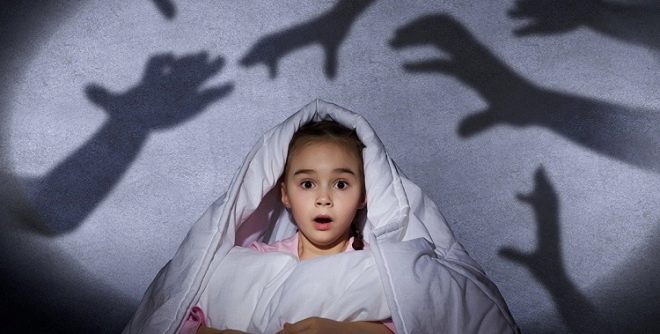Psychosomatics of neuralgia in adults and children
Neuralgia is especially interesting to psychoanalysts, because the medicine, no matter how hard it tried, could not find it. Painful attacks, tics can occur with people of any age, gender, race and nationality. And at the same time, despite the wide prevalence of the problem, effective treatments have not yet been found. Neither surgery nor medication does not guarantee that a sudden attack of pain will not return again. It is here, according to experts, it is very important to find the psychogenic causes of what is happening and eliminate them.
reference Information
Neuralgia is the lesion of peripheral nerve endings, which is manifested by severe painful attacks. At the same time, there is no restriction of movements and functions, as with neuritis, sensitivity is maintained, the pinched nerve itself is not affected, its structure is not disturbed. Neuralgia is usually formed in the nerve endings that pass in narrow canals, where the clamp is most likely.
If neuralgia is primary, then other diseases during the examination is not detected. Such neuralgia often has a psychogenic origin. In the secondary form, examination reveals tumors or areas of inflammation that have a squeezing effect on the peripheral nerve.
Ailment can manifest anywhere - from face to heels. It is believed that predisposing factors can be infections, colds and hypothermia. The most common type is trigeminal neuralgia. When her pain develops on the background of facial trauma, sinusitis, unhealthy teeth, malocclusion. The pain occurs when trying to eat hot or frozen, from loud sounds, light, touching the gum or nose can also be a start for an attack of pain, which can last from a few seconds to a few minutes.
Intercostal neuralgia is equally widespread when the ribs hurt. Often, the external part of the thigh is also struck. Sometimes the glossopharyngeal, occipital, sciatic, cervical, and facial nerves are affected and clamped.
The fact that the problem has psychosomatic causes is indicated by the primacy of the disease, that is, no tumors, inflammatory processes and injuries were preceded by pinching, nothing that could have affected the clamping, is not detected during the examination, but there are pain attacks, a nervous tic. greatly disturb the patient.
Psychosomatic causes
The true reasons for the sudden pinching of the peripheral nerve are unknown to medicine today. Therefore, psychosomatic reasons are considered as very likely even in neurology courses taught in medical schools. The fact that periodically (often unexpectedly) emerging pain affects the human mind is indisputable. His behavior, habits, reactions change. But how the psyche can affect the likelihood of clamping has not been very clear for a long time.
Nerves - guides. They deliver information to the brain and from there they carry out a signal-command to certain organs, muscles, and cells. Conductivity is disturbed when a person has his own feelings and emotions uncoordinated, he does not know what he wants, he is thrown from side to side through life, it is very difficult for him to make a choice.
Note that different dislocation neuralgia can have different meanings in psychosomatics.So, pinching the facial nerve (neuritis of the facial nerve - as an option) is characteristic of hypocritical people who get used to live under different masks. They have to make a smile, when internally everything is protesting against it, to cry for show, when you do not want to cry. The disease develops when an internal conflict reaches its peak - the nerve has squeezed tight muscles of the adjacent canal tissue.
From this point on, it becomes more and more difficult to hide emotions - in a painful attack, the grimaces on the patient's face change quickly - anger, laughter, fear, crying. It becomes unclear to the observer what kind of feeling the patient actually feels - they together begin to emerge after a long imprisonment.
A person with trigeminal neuralgia, compared to psychotherapists, receives slaps from fate. And in fact, he feels beaten after an attack. Usually, this kind of neuralgia suffers from very aggressive people, who themselves are used to giving slaps to the right and left (both in the direct and psychological sense), stinging, witty, but unfortunately unfriendly. In psychosomatics, it is believed that it is the hidden and hidden aggression (it is not always possible to slap a slap in the face - there are bosses and more powerful people who can respond identically!) Leads to clamping and subsequent inflammation of the trigeminal nerve.
People with neuralgia, which affects the face, neck, ears, are used to doing a good face on a bad game. For them, life under the mask - the norm. Therefore, most often such forms of illness affect women who habitually tend to look better than they really are, who rejuvenate and smile, not because they like the other person, but because it is so accepted in good society.
Intercostal neuralgia - pinching of the intercostal nerves. According to medical statistics, occurs mainly in people after 25 years. In children, almost never happens. Of the 12 pairs of intercostal nerves that each person possesses, only one nerve or bundle may be trapped, and this alone will cause pain, which is often compared in intensity with the generic ones. Frequent bouts of intercostal neuralgia indicate a significant disruption in the work of the nervous system and the psyche of a person who is under severe stress for a long time. Fear and anger can cause pain, basically - the fear of living “full breasts”, without any restrictions, anger at the fact that others still manage to live like that.
Intercostal neuralgia sufferers usually try to avoid feelings in general, it is easier for them to deny them than to experience and release as nature demands. He crushes his emotions in order not to live them. Unjust resentment, pain is expressed by a very real pain, which begins every time when a person finds himself in a situation resembling that long-standing one that once traumatized his psyche so badly.
Very often, neuritis and neuralgia with the defeat of the sciatic nerve are affected by people who have increased conscientiousness - they blame themselves for what they did, and for what they did not, and this tremendous feeling of guilt does not allow them to move forward (so that not "done"!). The pain constrains their movements and does not make it possible to take a step exactly in those minutes when they are at a crucial stage, they have a choice to make.
Parkinson's disease is an idiopathic neurological paralysis, a progressive ailment of the elderly, the causes of which have not been established. From the point of view of psychosomatics, a person refuses to contact with the outside world at all, take information from him and completely immerses himself in his memories, lives the most traumatic of them again and again, blames himself, carries a terrible secret inside.
Disorders in children
In childhood, neuralgia is a rather infrequent phenomenon; if it appears, it is mainly the result of prolonged neurosis, stress, and anxiety. Psychoanalysts tend to believe that the cause may be a rude, impersonal attitude on the part of adults, insults, pressure and humiliation. If all this is present in the upbringing, the child grows with a heightened sense of guilt, with aggression, which, due to age, cannot go outside.
Strong fear, fear, come from the outside world and violate the idea of goodwill and security, can lead to the development of neuralgia, stuttering, tic.
The development of pathology is sometimes promoted by the parents themselves, who allow themselves to shout at the child, threaten him, use physical punishment. Gradually, the child forms a stereotype that "any sin must be punished." With this position, a good investigator or judge may grow out of him in the future, but it will be difficult for him to protect himself from neuralgia, since he, too, will judge himself mercilessly and constantly.
In any case, not only a neurologist and a pediatrician, but also a psychologist should understand baby neuralgia. Physiological prerequisites (such as in older people - the aging of nervous tissue) in children for neuralgia is not. Therefore, in 100% of cases, pinching of the peripheral nerve will have psychosomatic prerequisites.
Opinion researchers
Louise Hay believed that the basis of neuralgia is the punishment of a man for his sins. A man punishes himself, he is painfully ashamed. Accepting one's actions, reducing self-criticism, strengthening the nervous system and relaxation training usually help get rid of painful bouts of pain. Canadian researcher Liz Burbo argues that Neuralgia is based on repressed emotion. In what area to look for the true cause - tell the affected part of the body. Chest - area of feelings, personal, face - communication, interaction and exchange of emotions with the world, legs - movement forward, development, education, personal progress, hands - active doing, everyday activities.
Psychotherapist Valery Sinelnikov claims that Neuralgia suffers from people who have a hypertrophied conscience, they take responsibility for their own and others sins and mistakes. Sincere forgiveness of oneself and others, absolution of all negative accumulated emotions will help to cope with the painful condition.
Treatment
Neuralgia treatment must necessarily include counseling by a psychotherapist. At the same time, not only the patient himself, but also his relatives, who will receive the basics of psycho-prophylaxis (how to behave with a person so that he does not return to the original pathological state) often need counseling. It is important to learn to relax, to express their feelings.


















